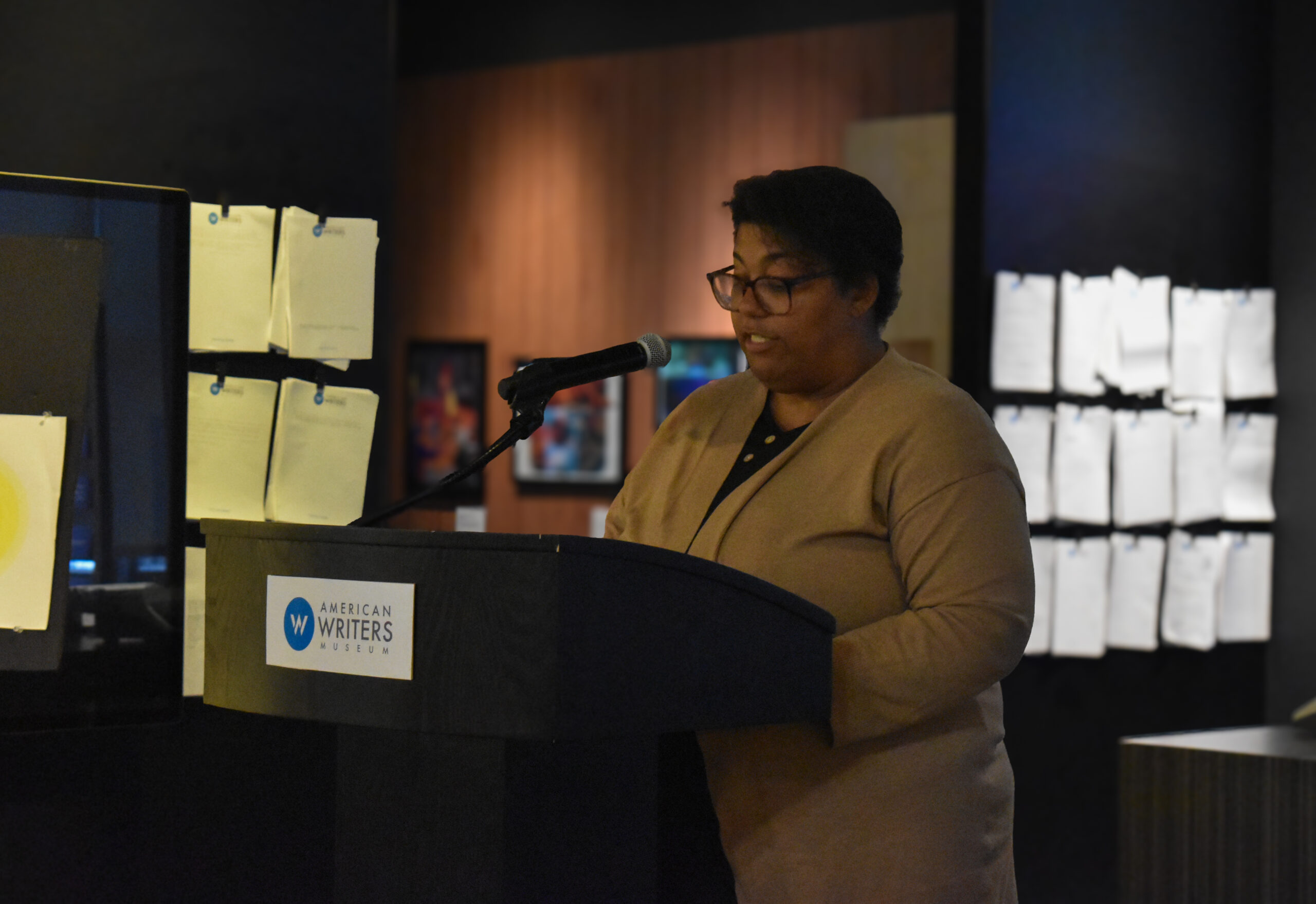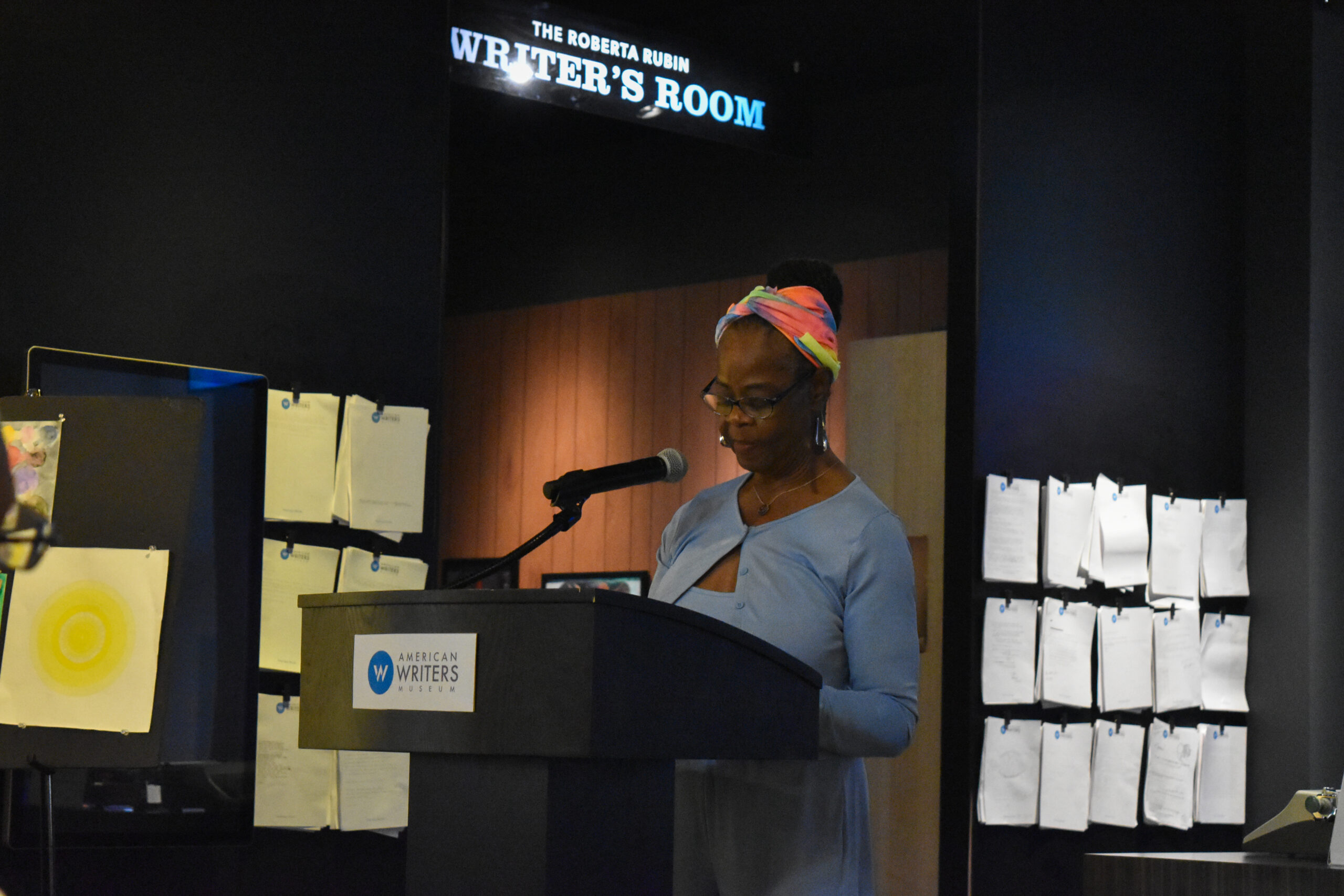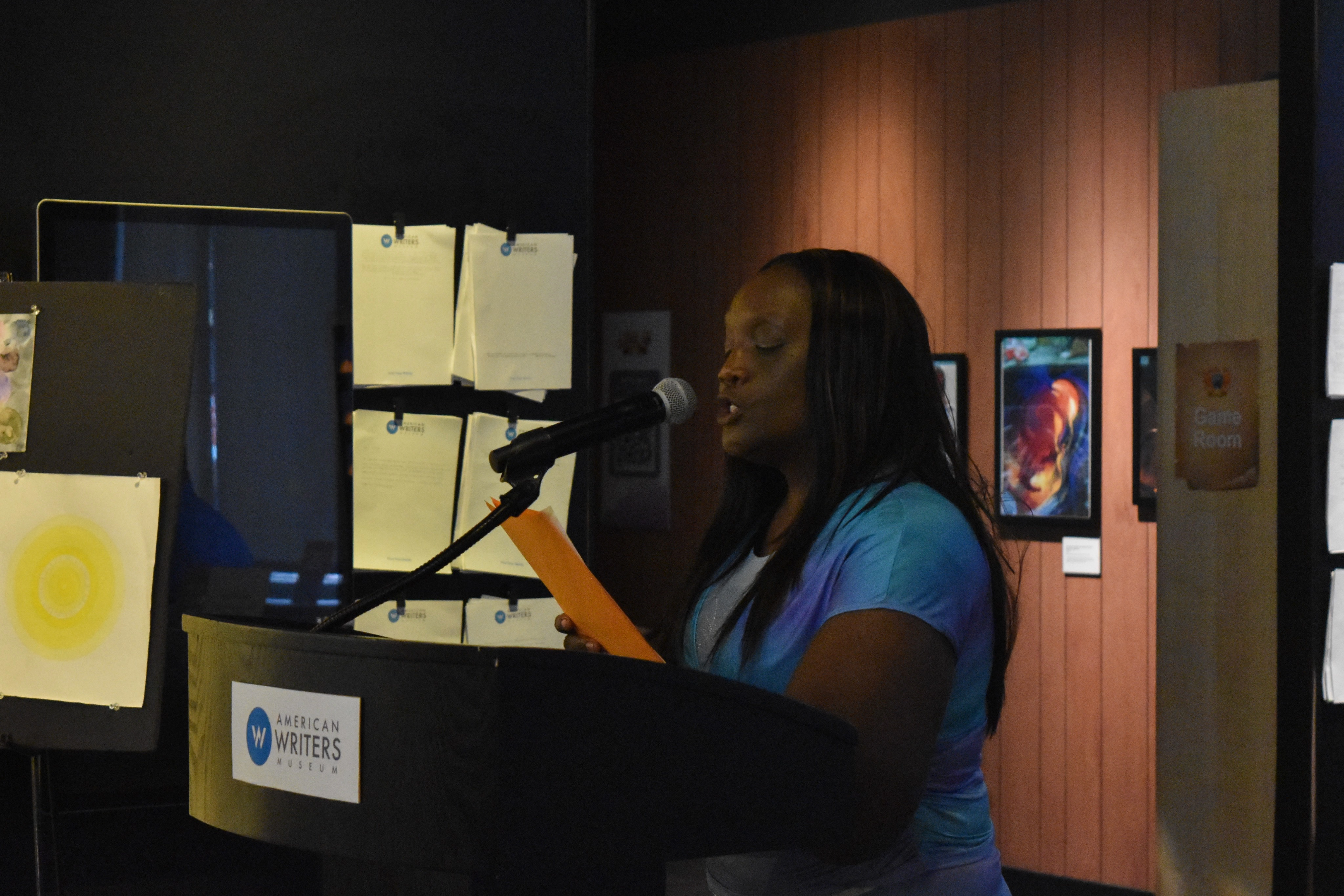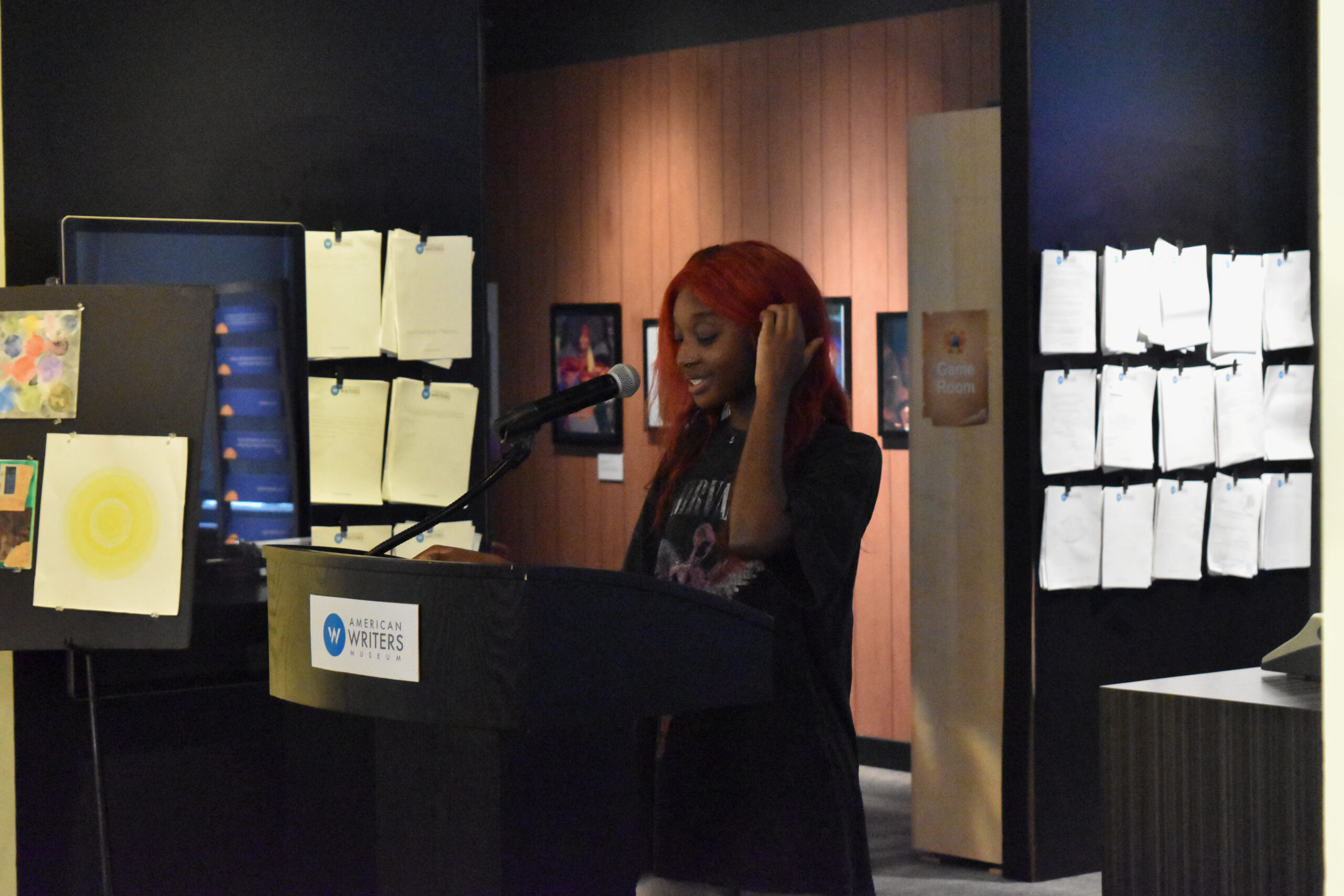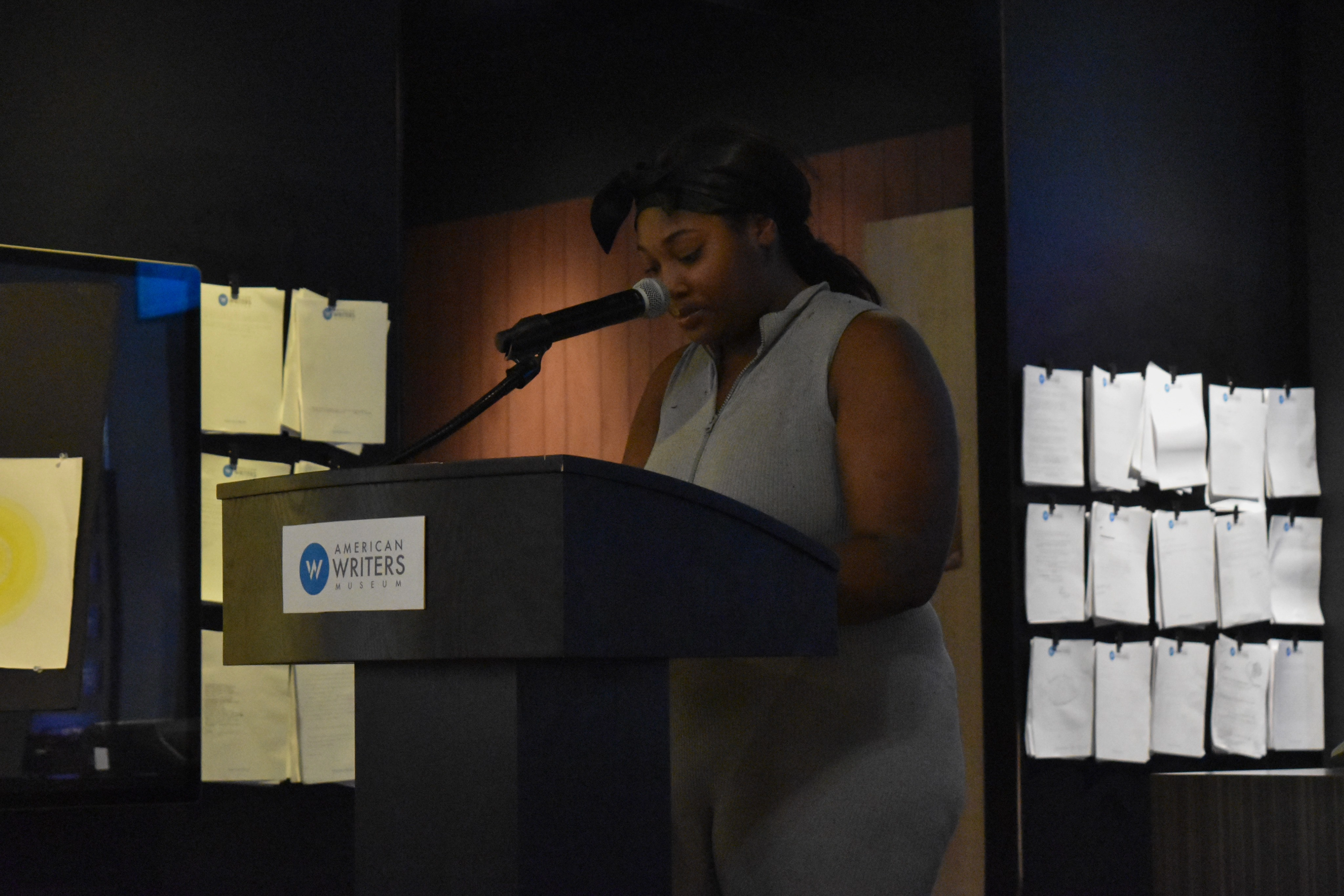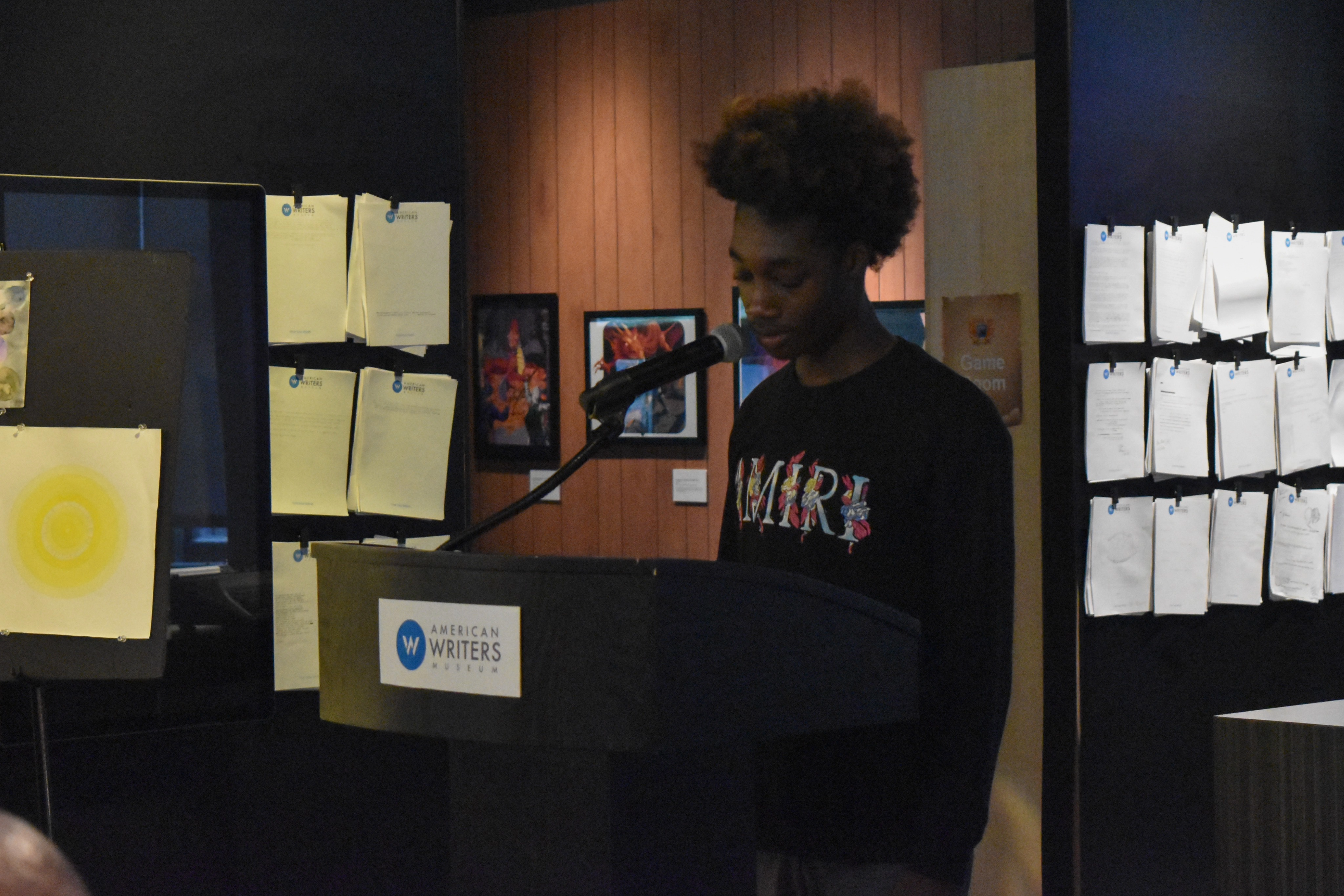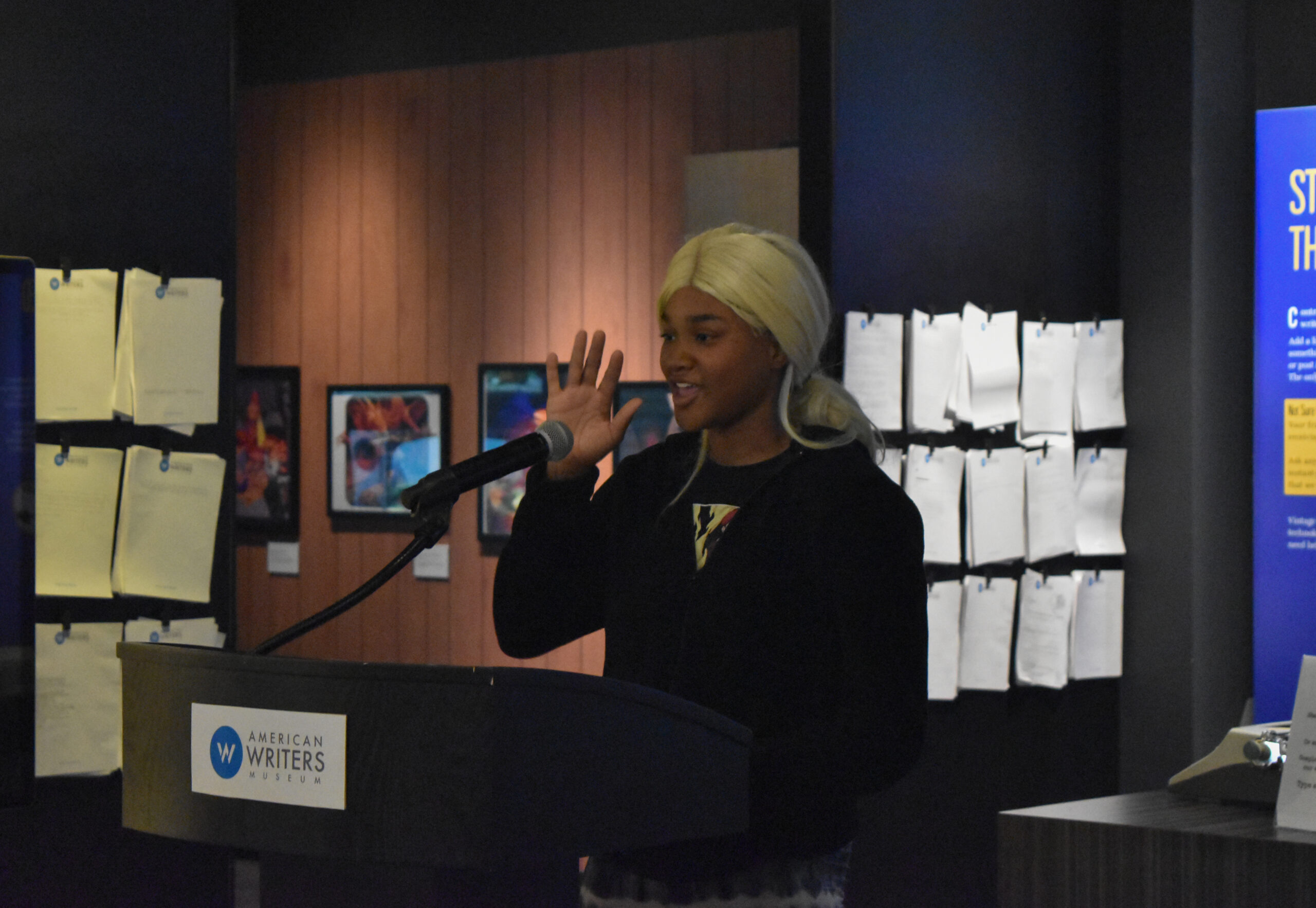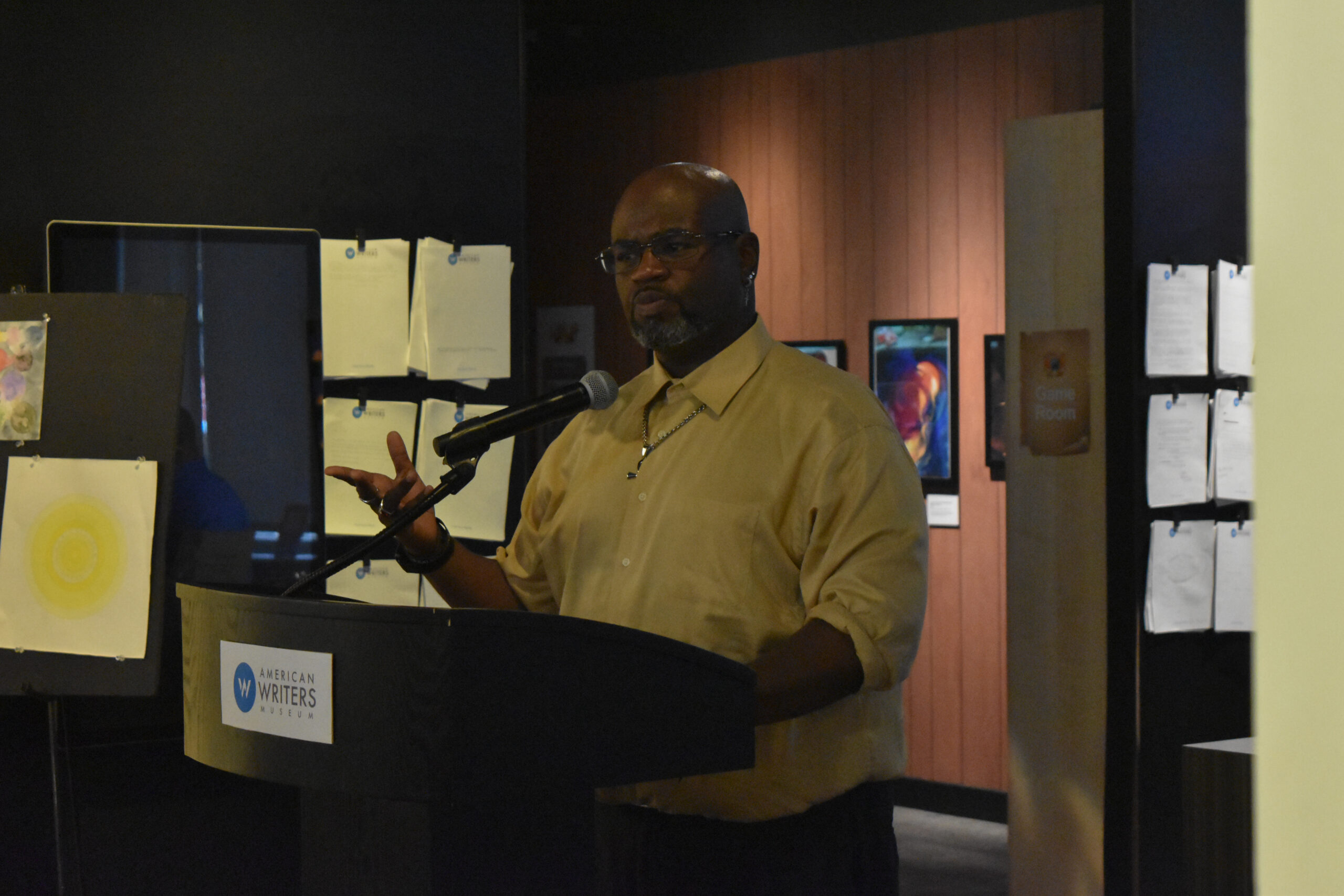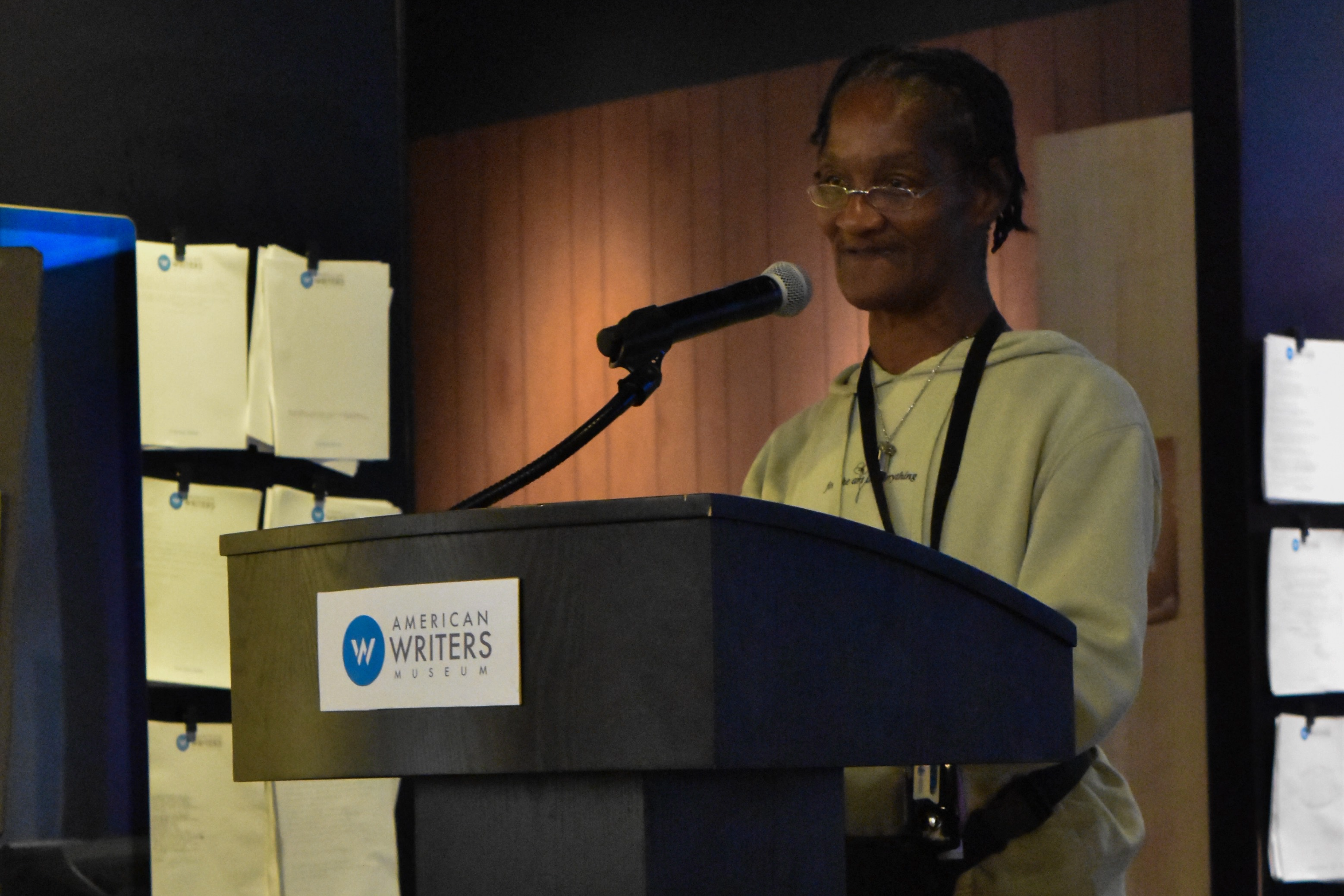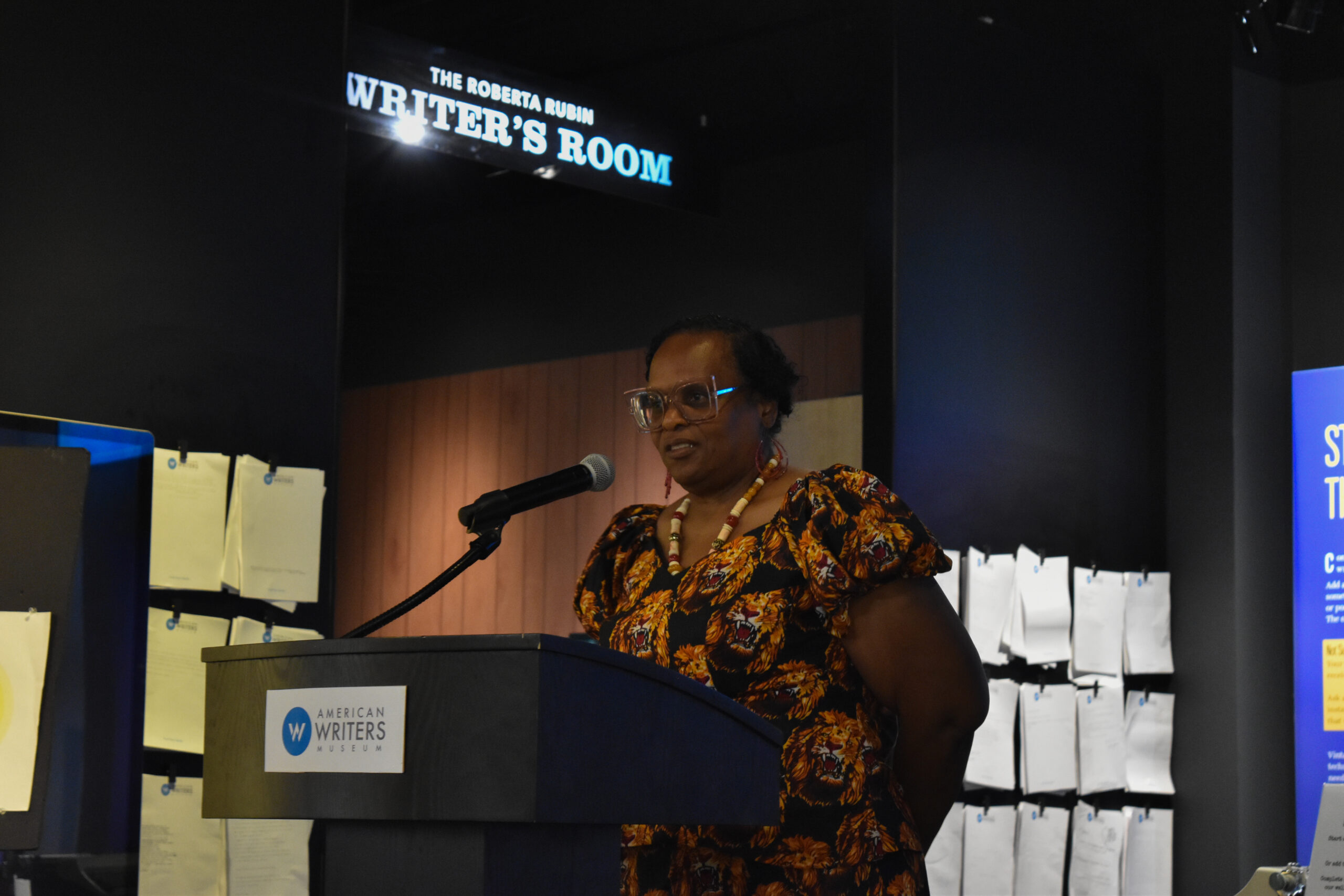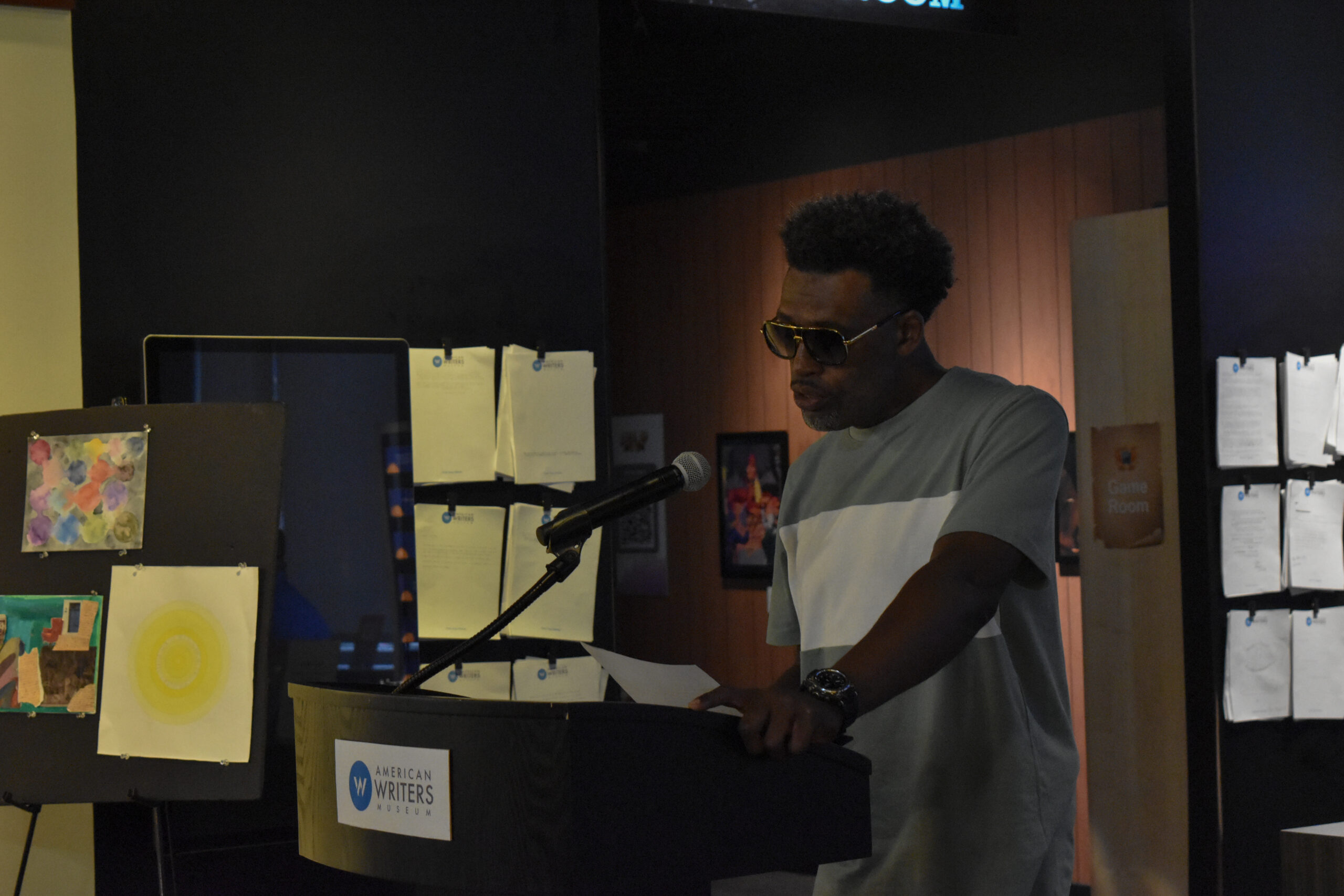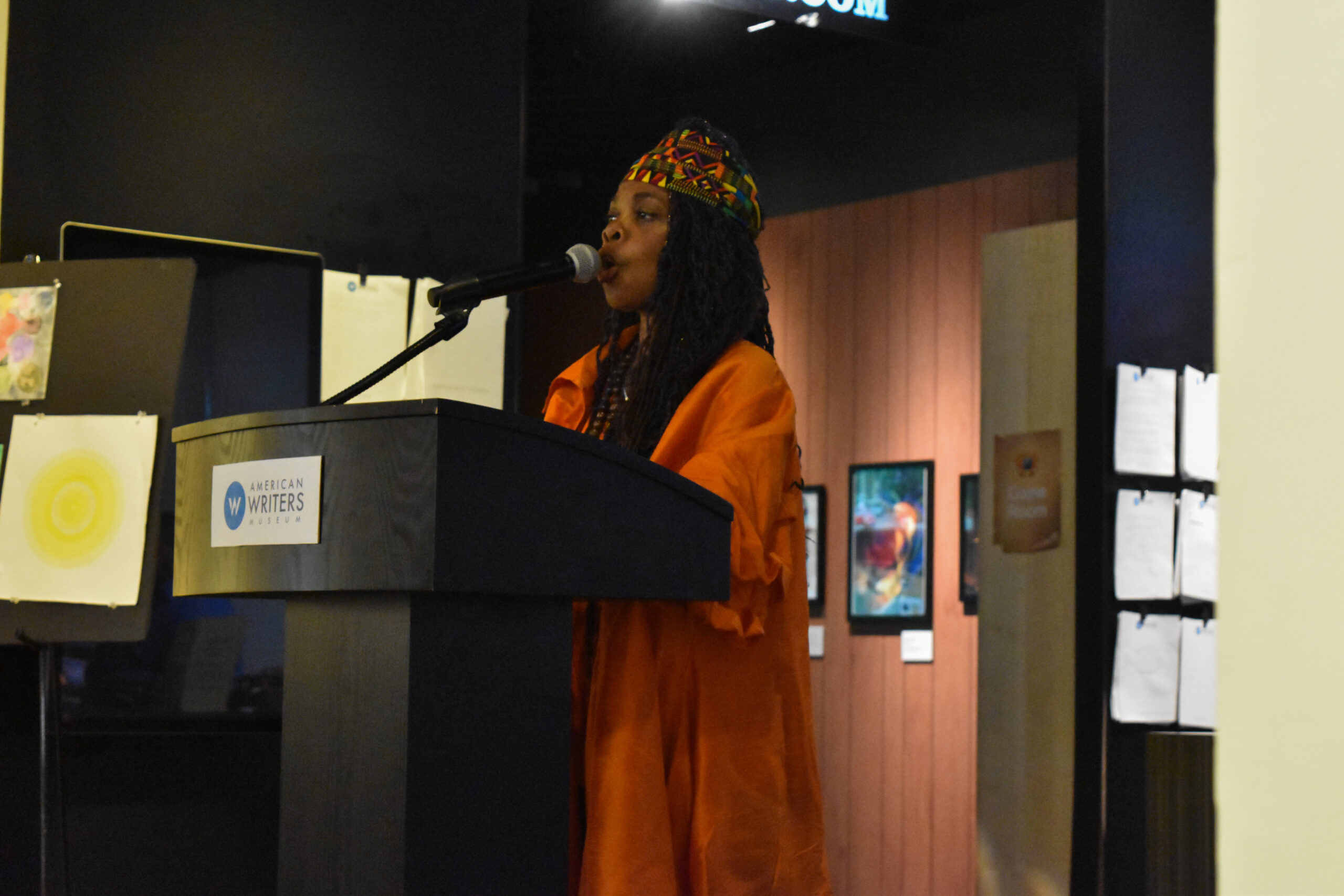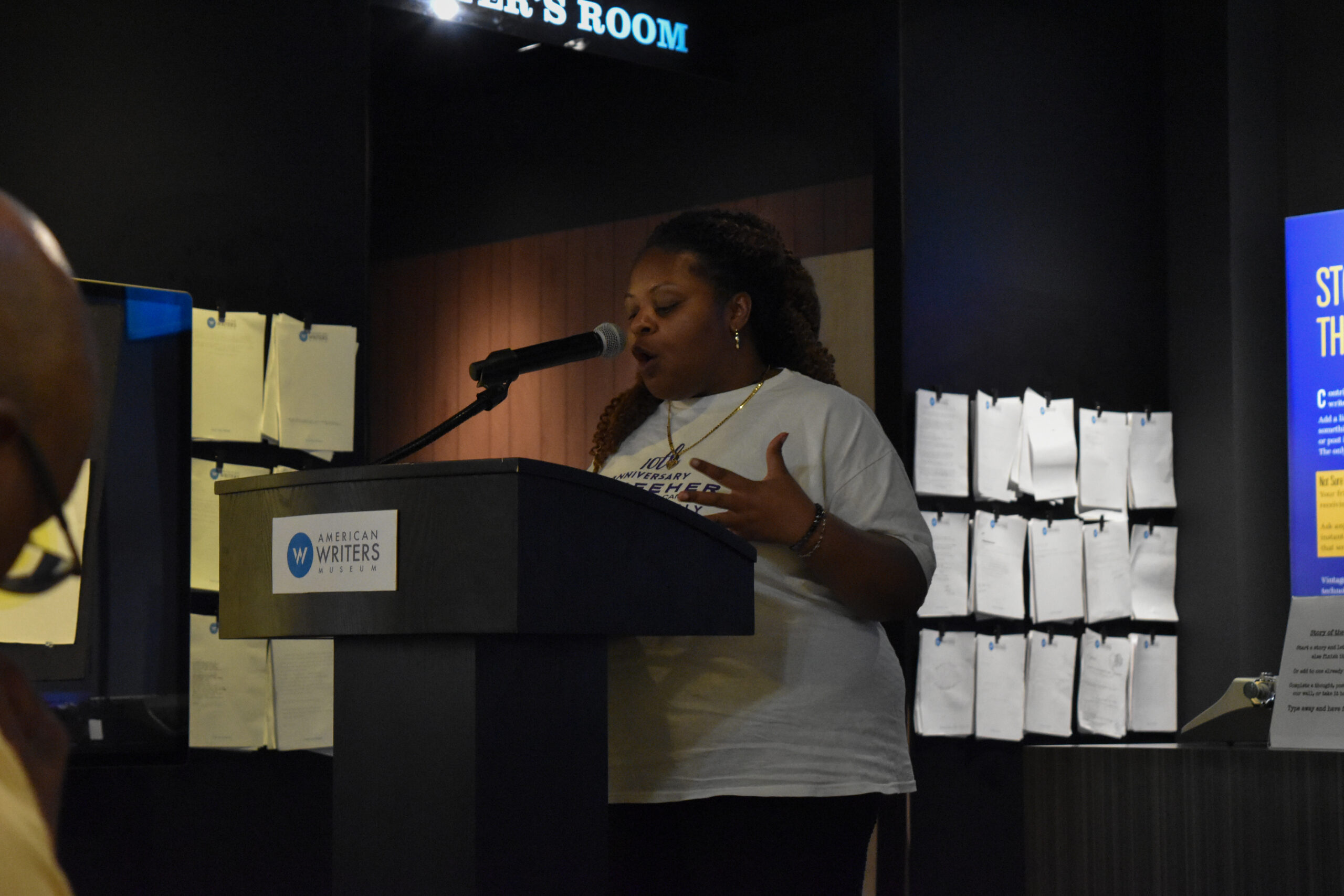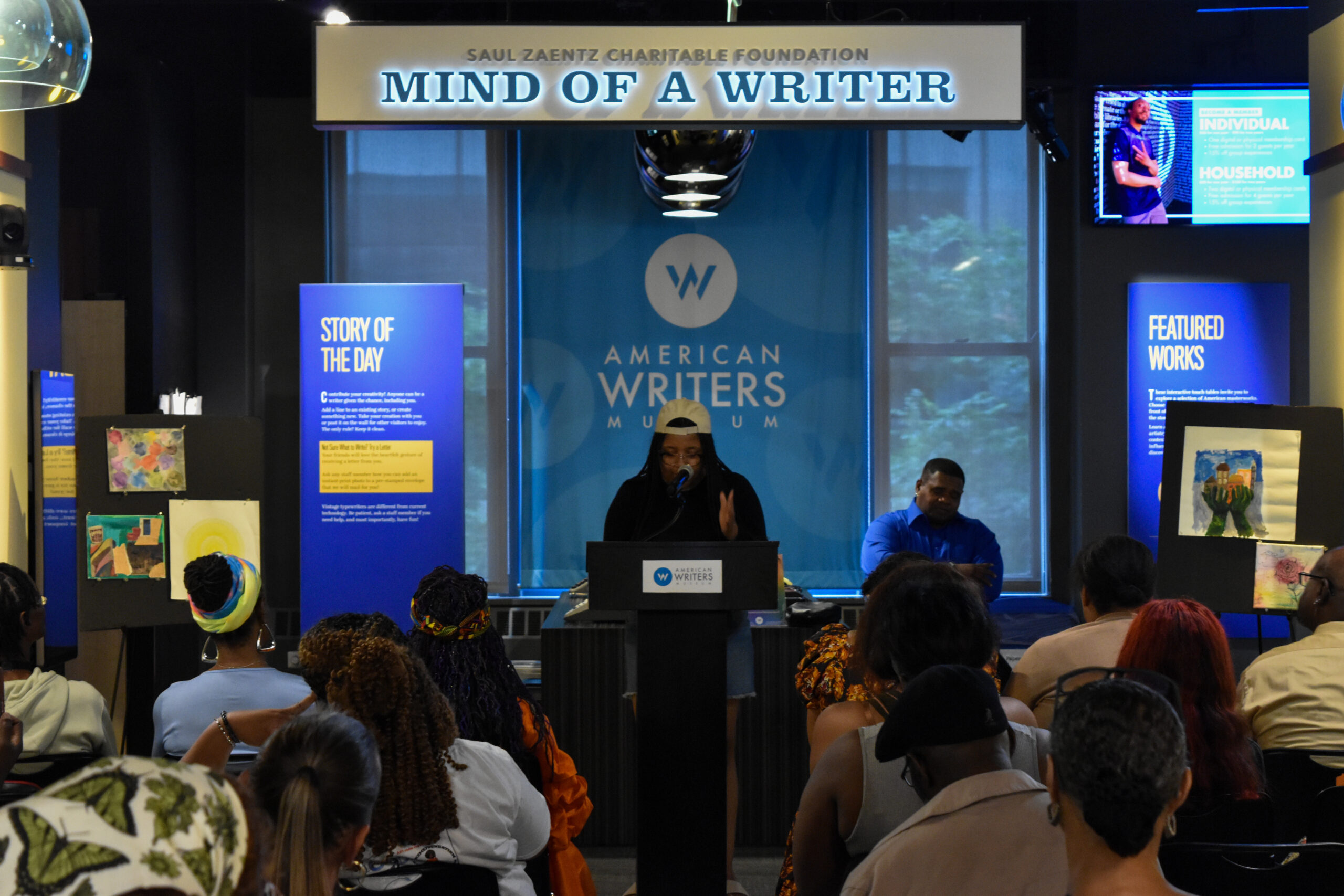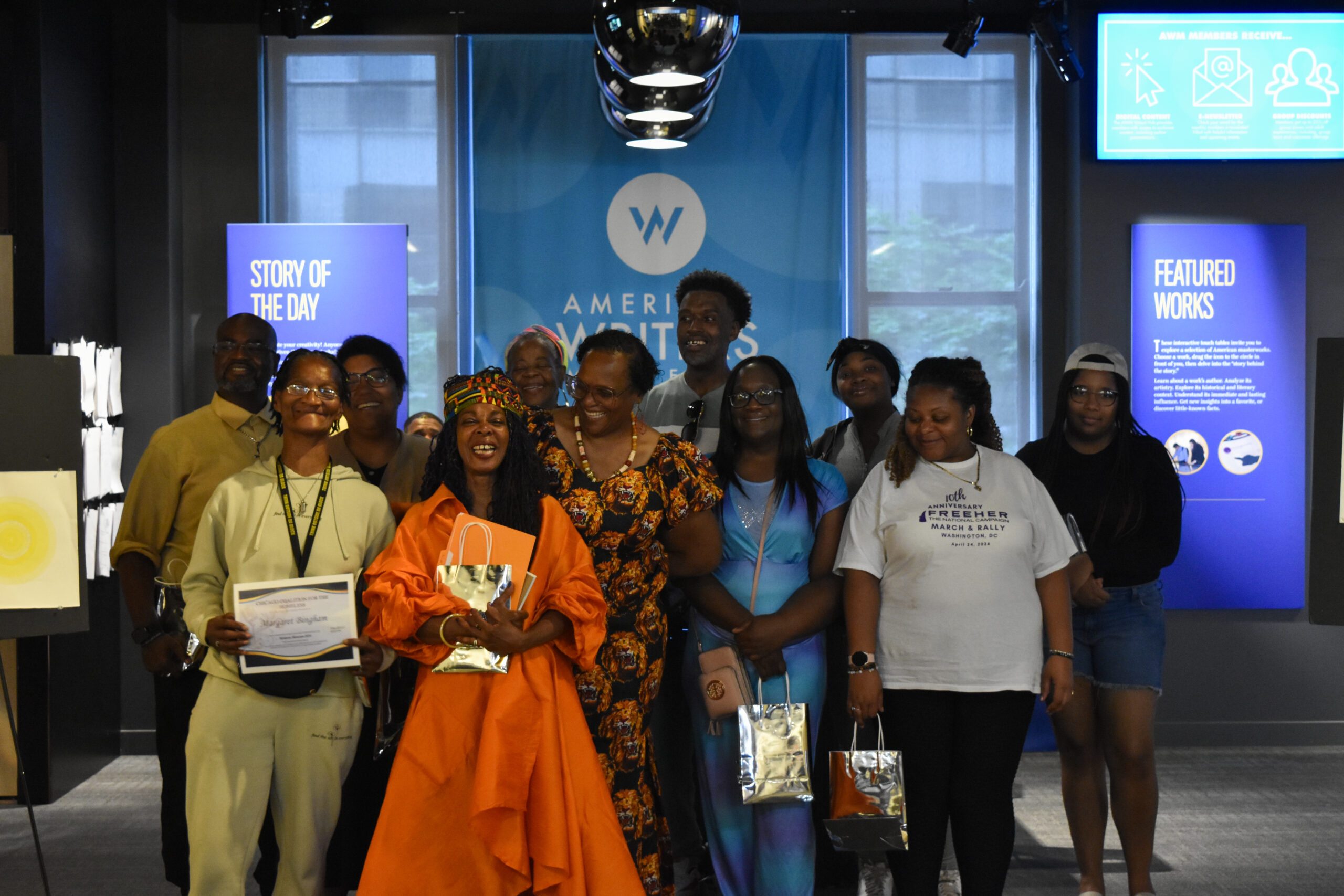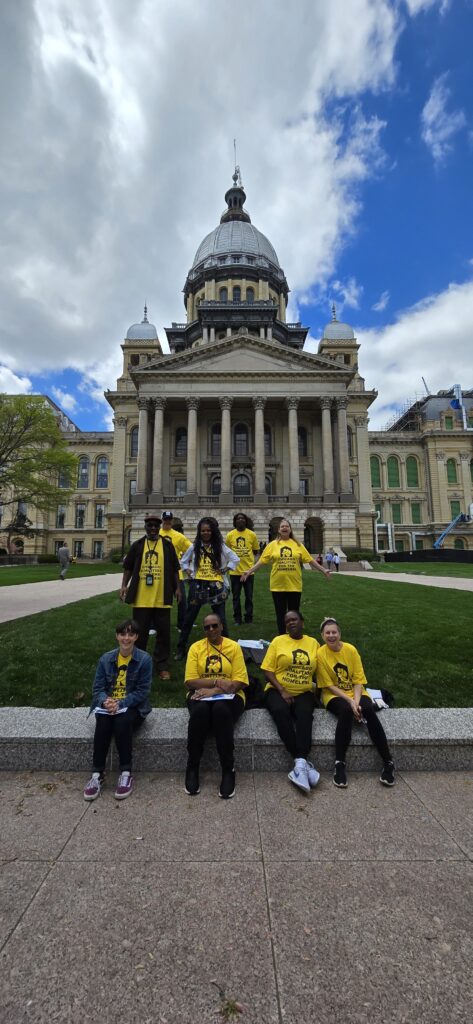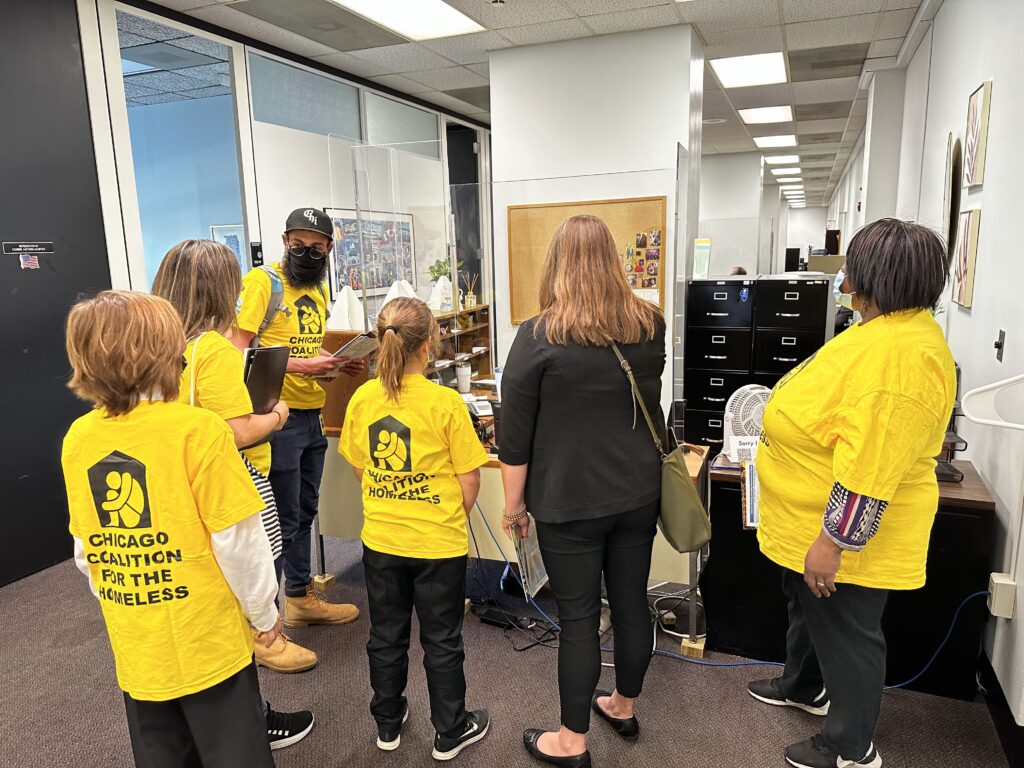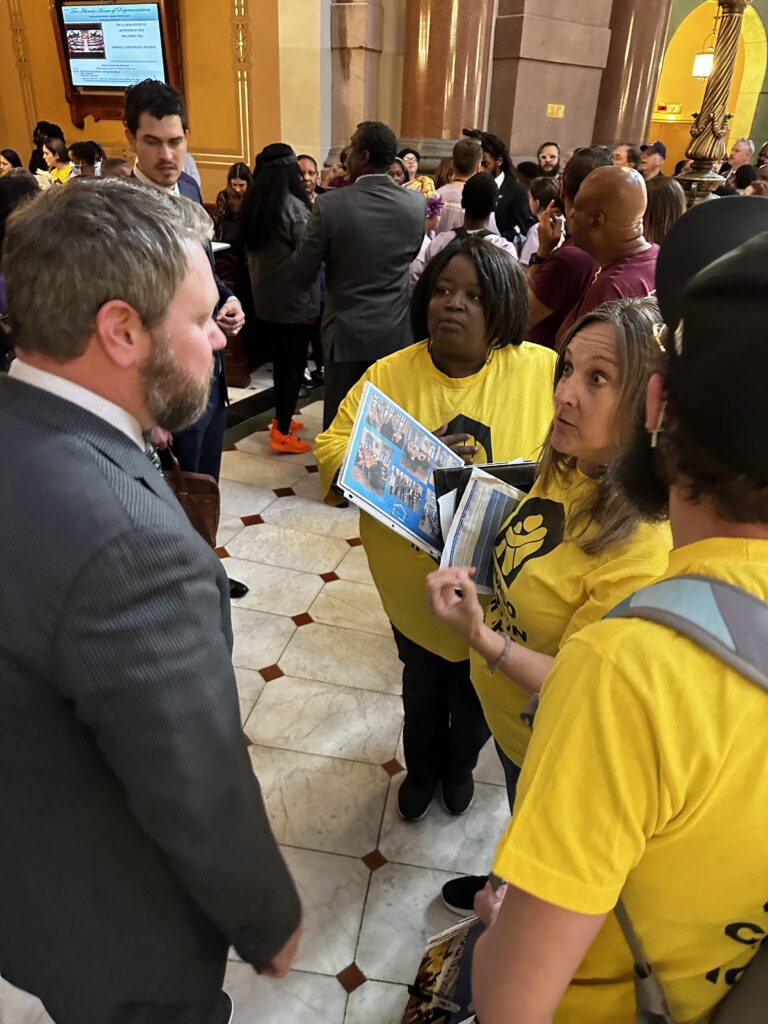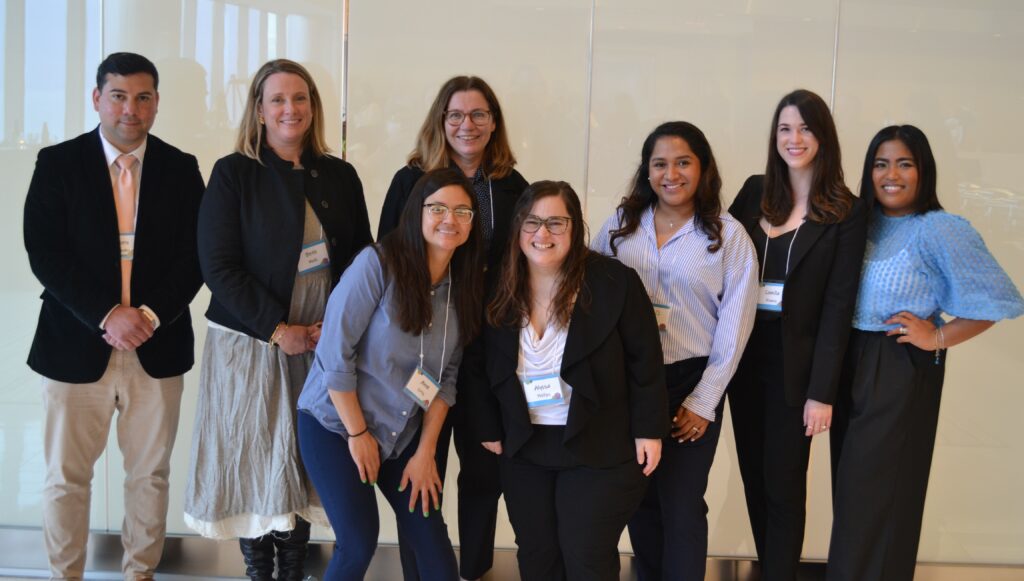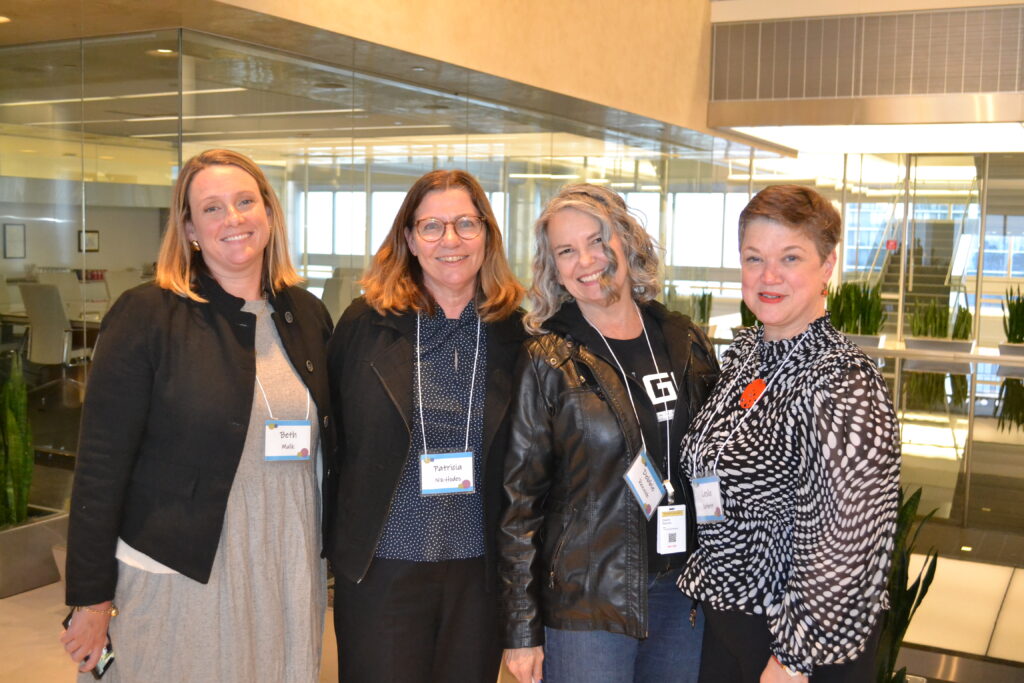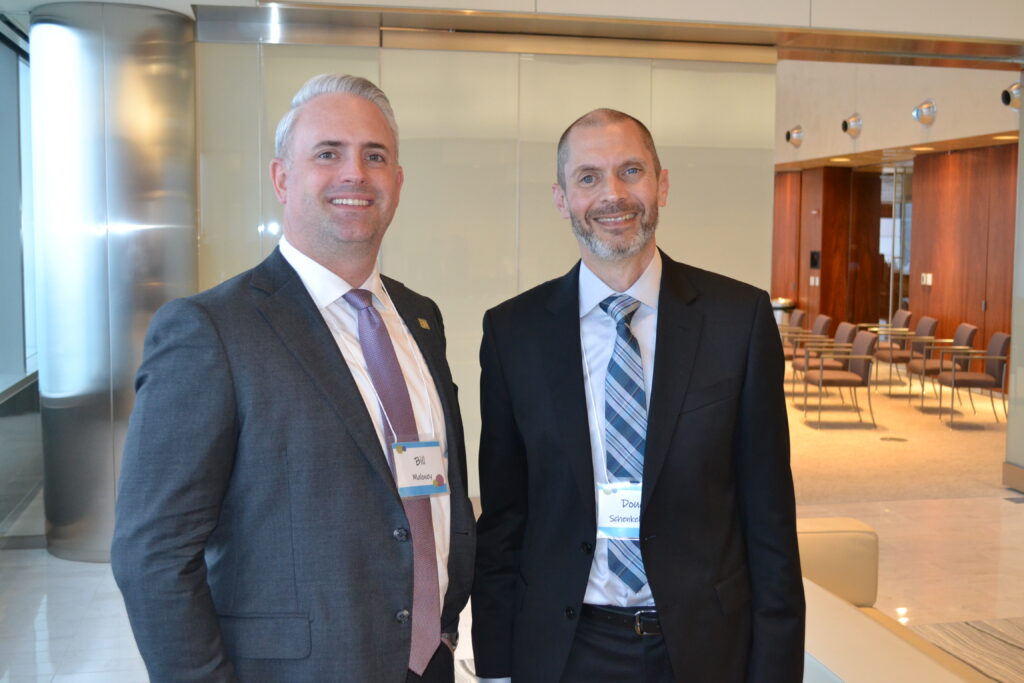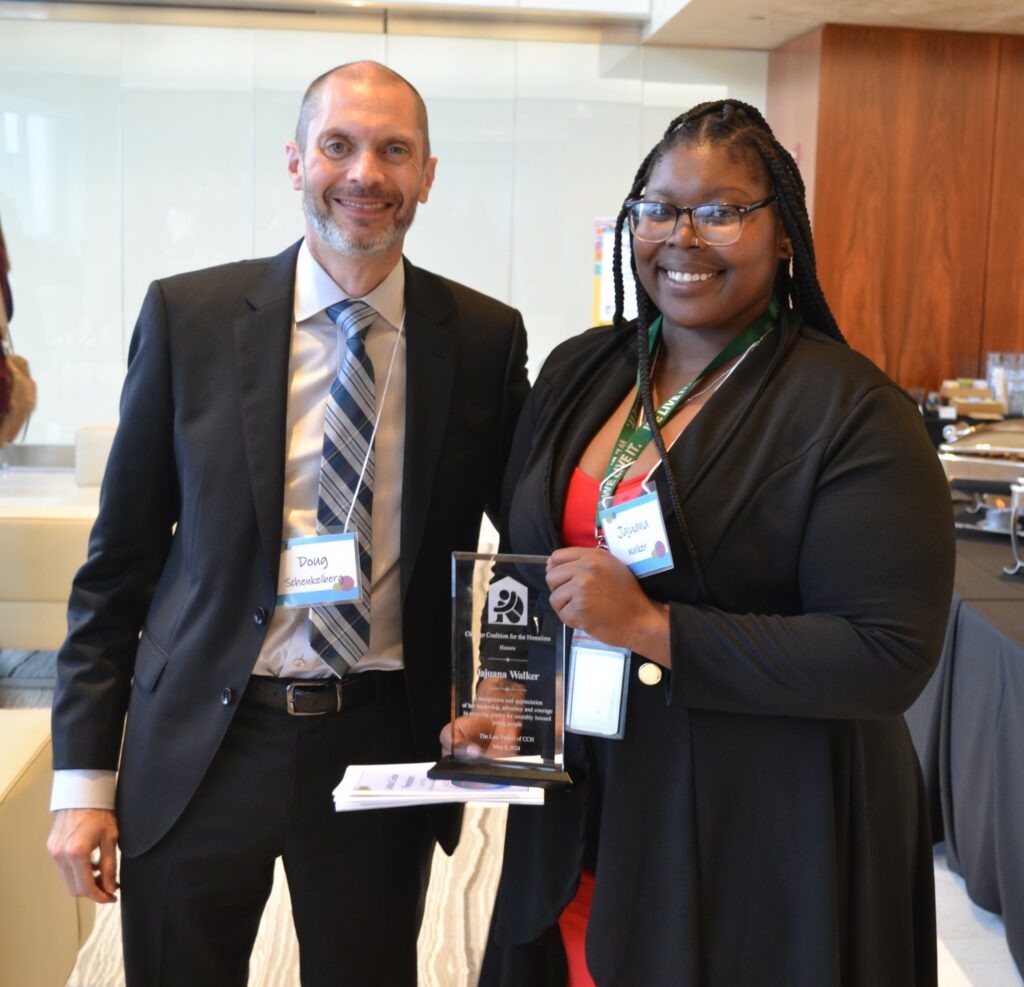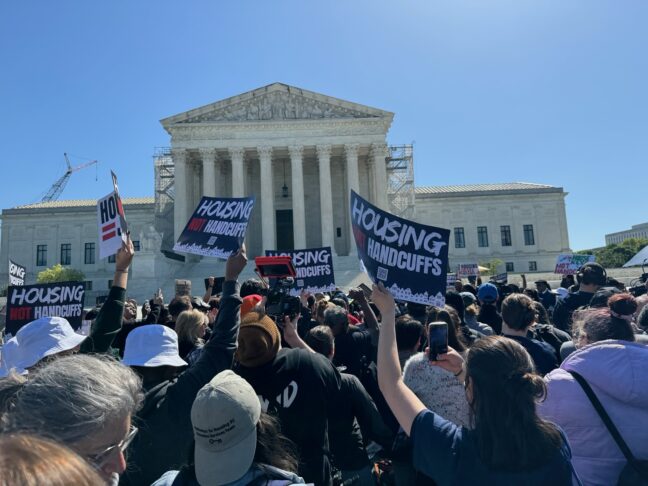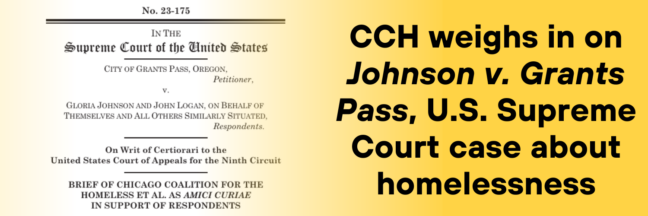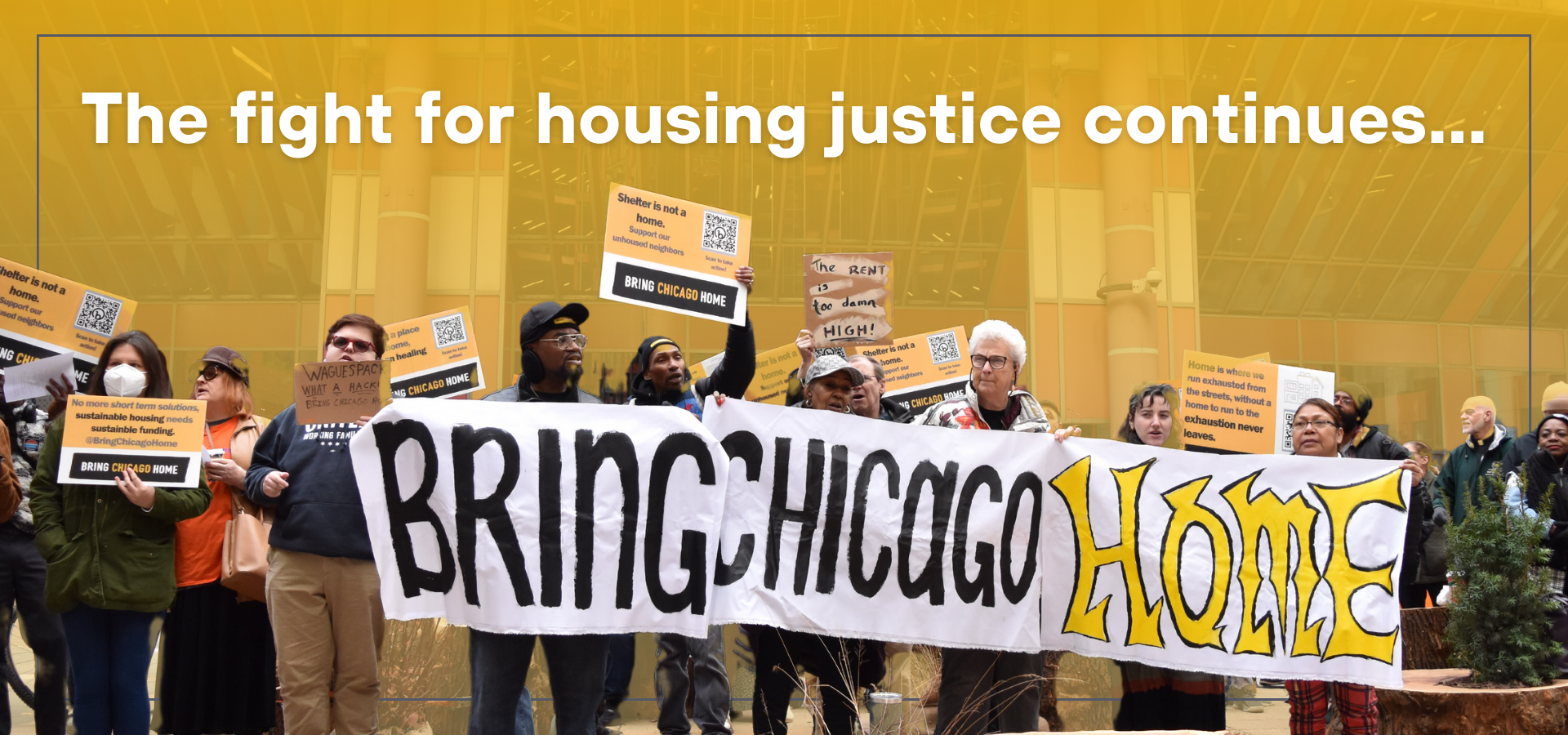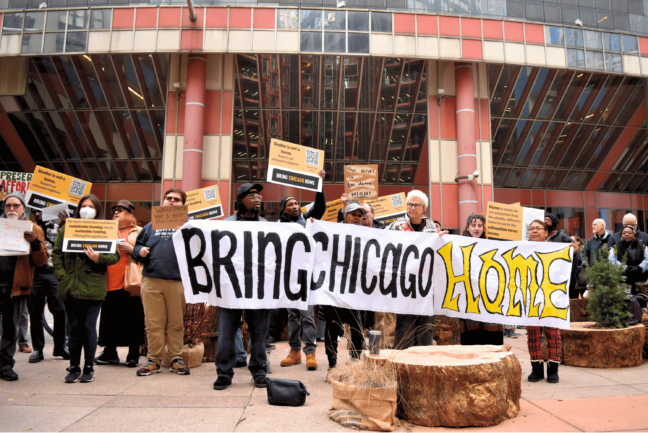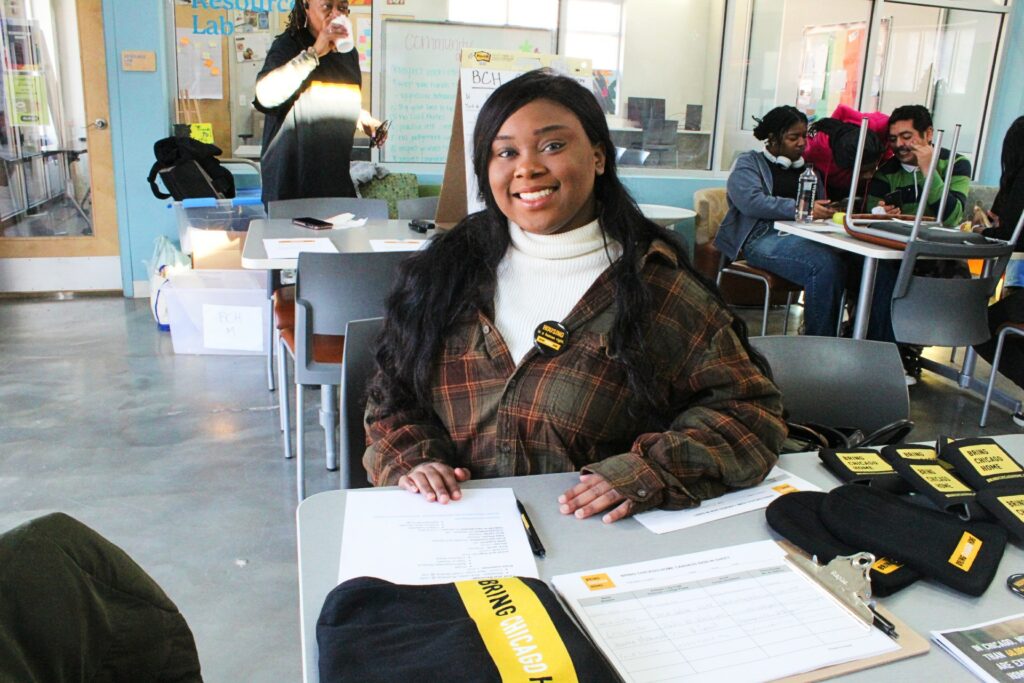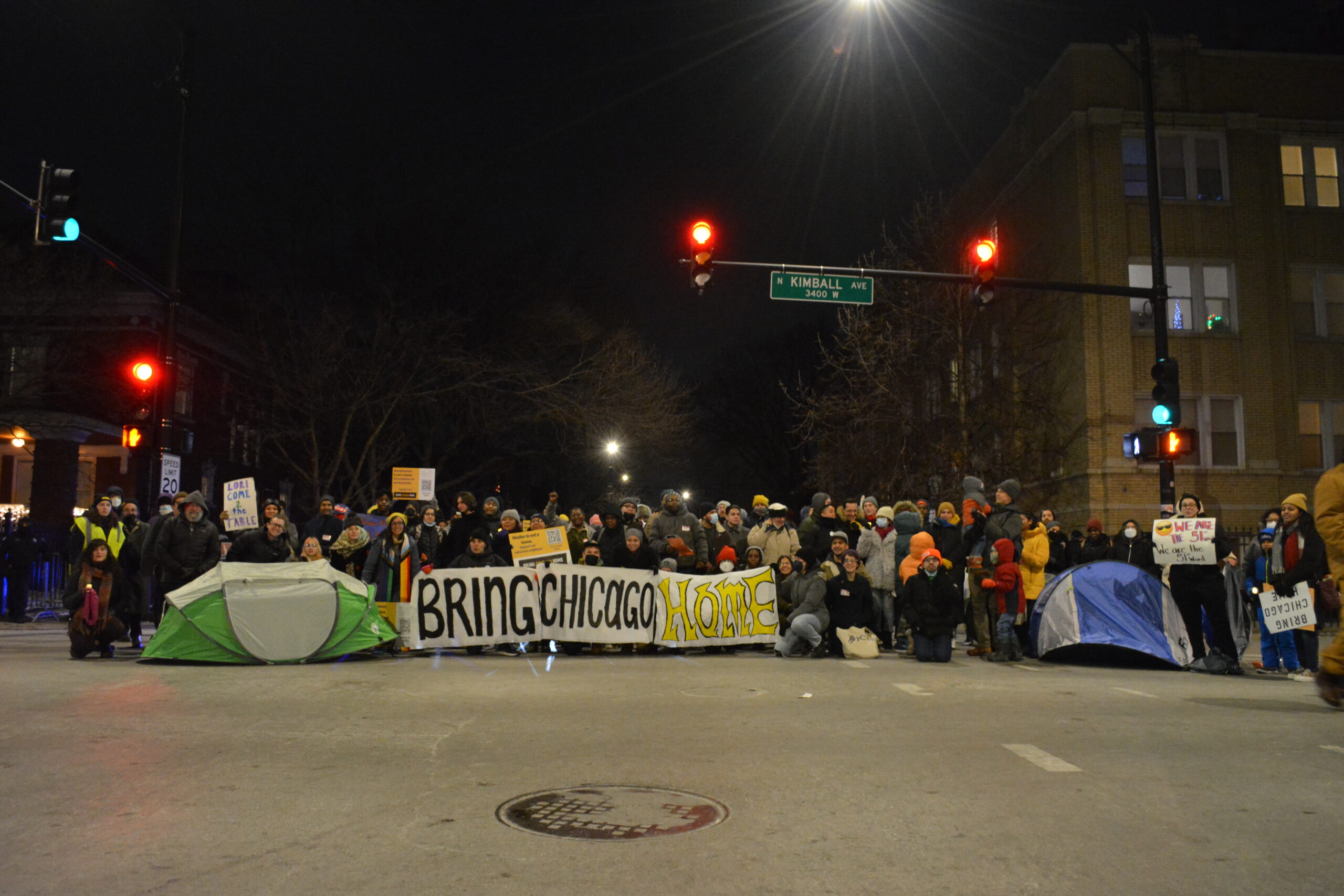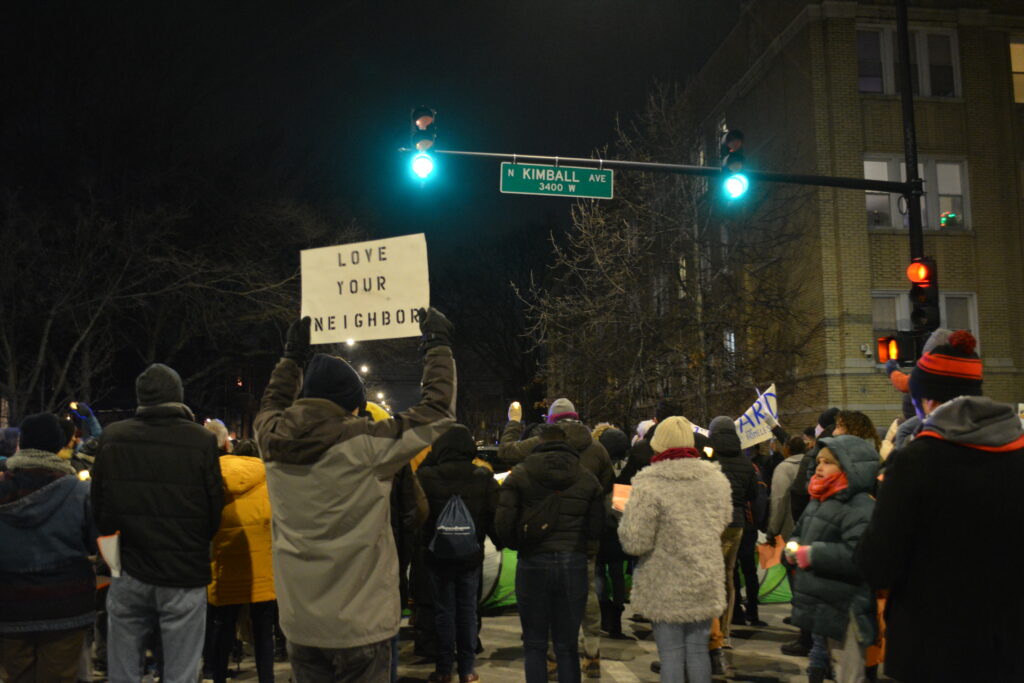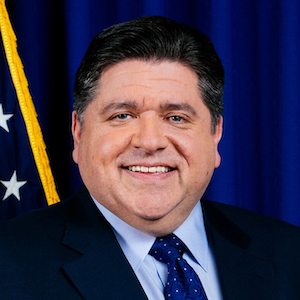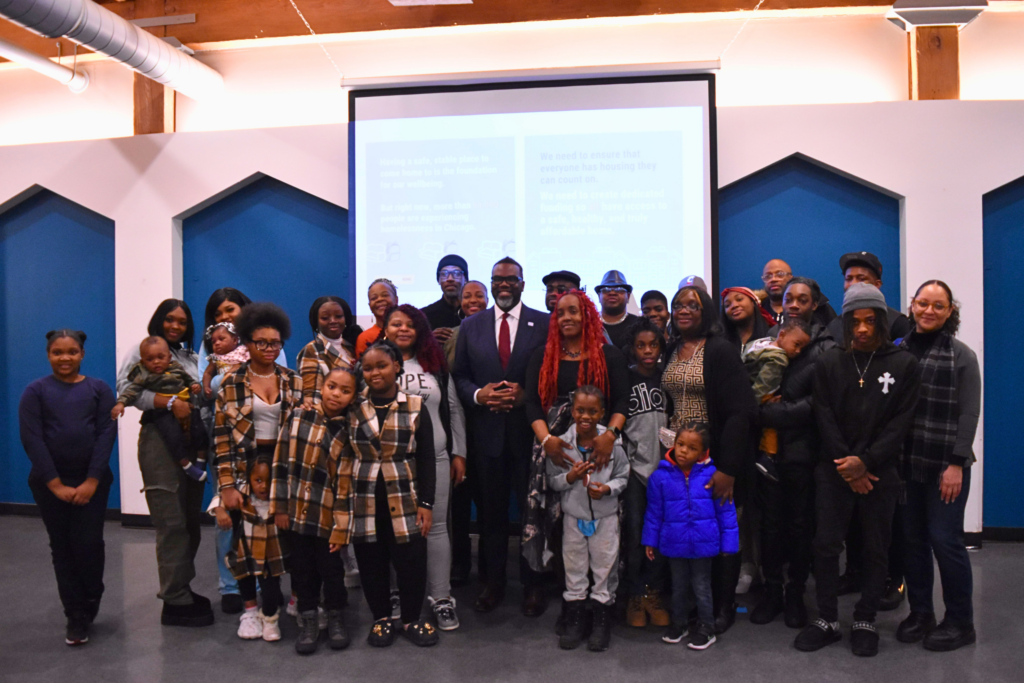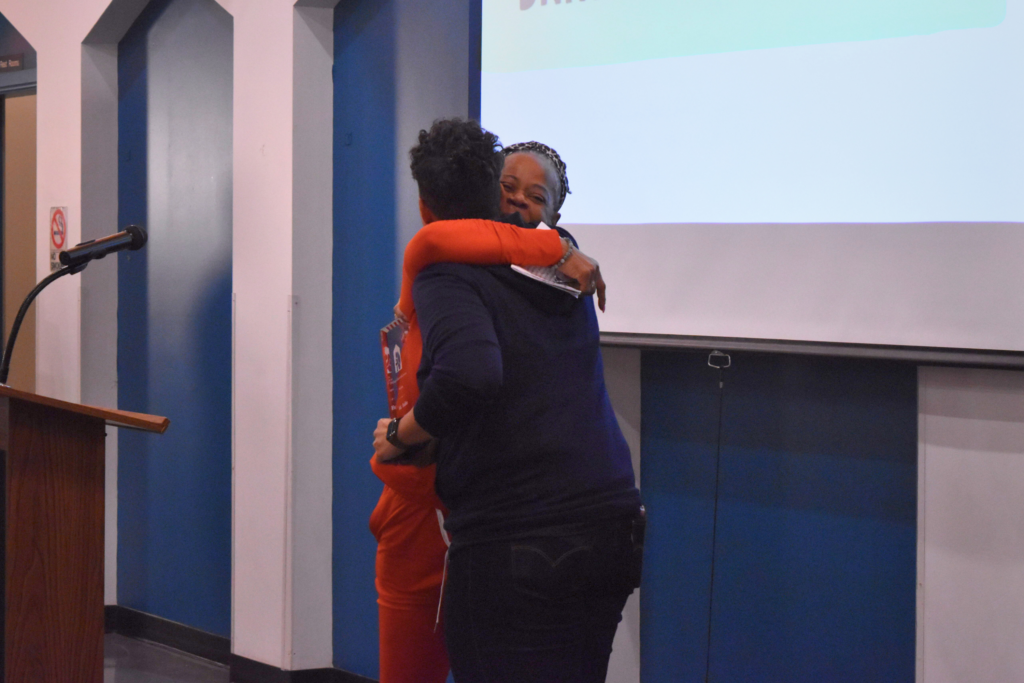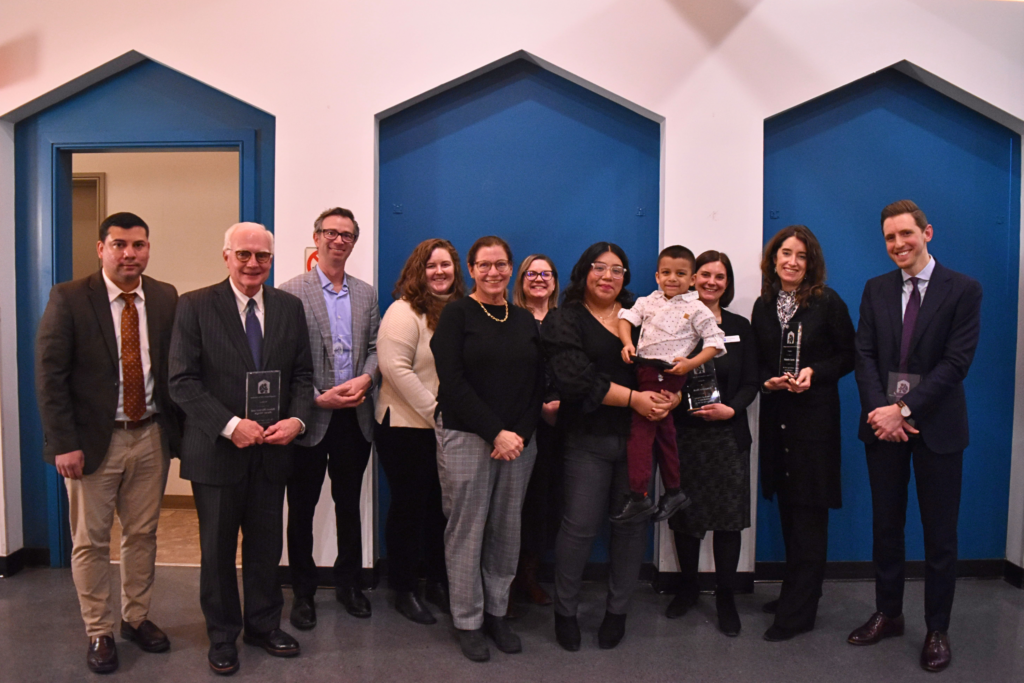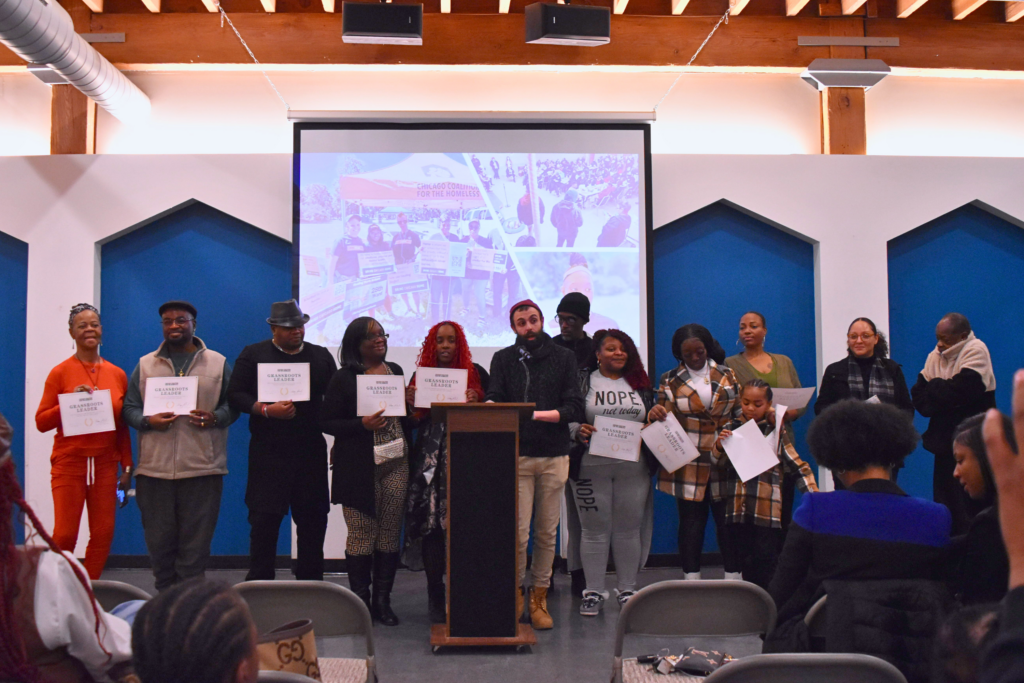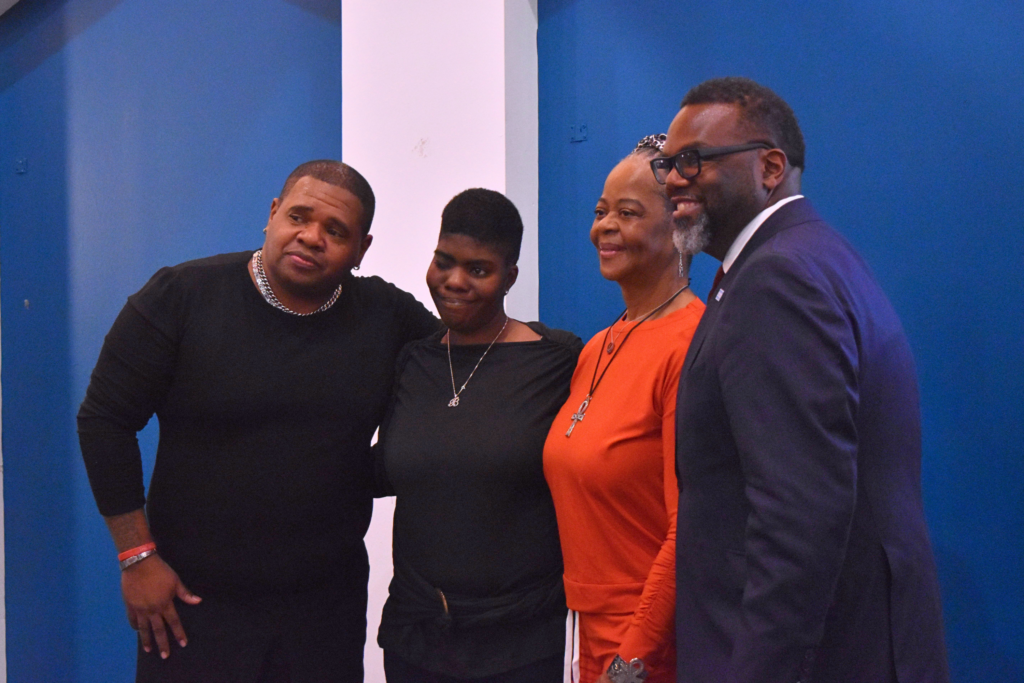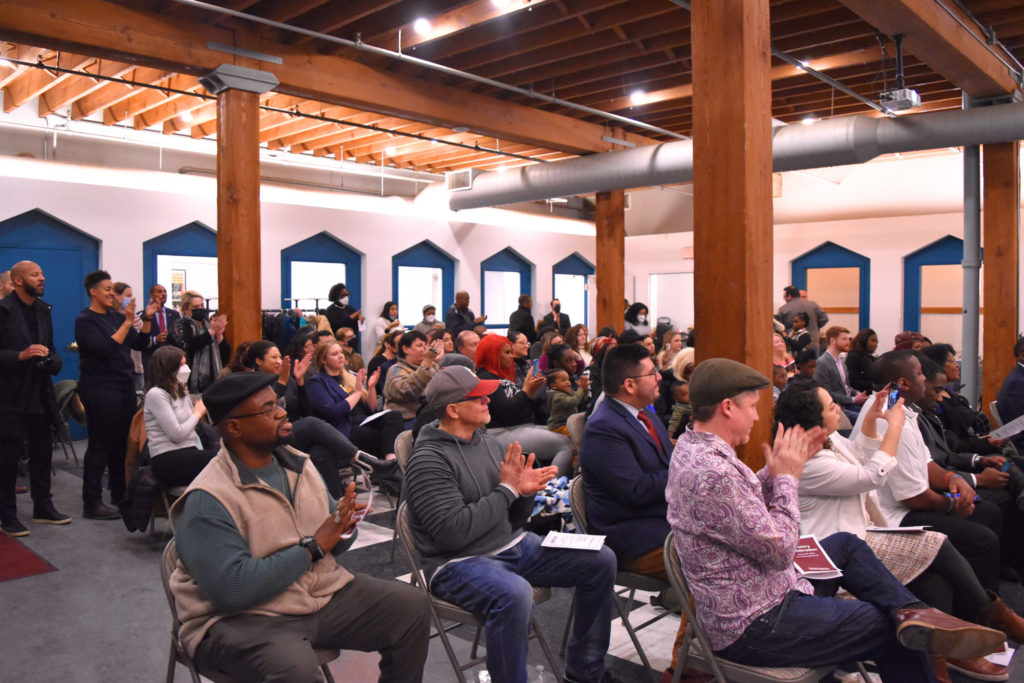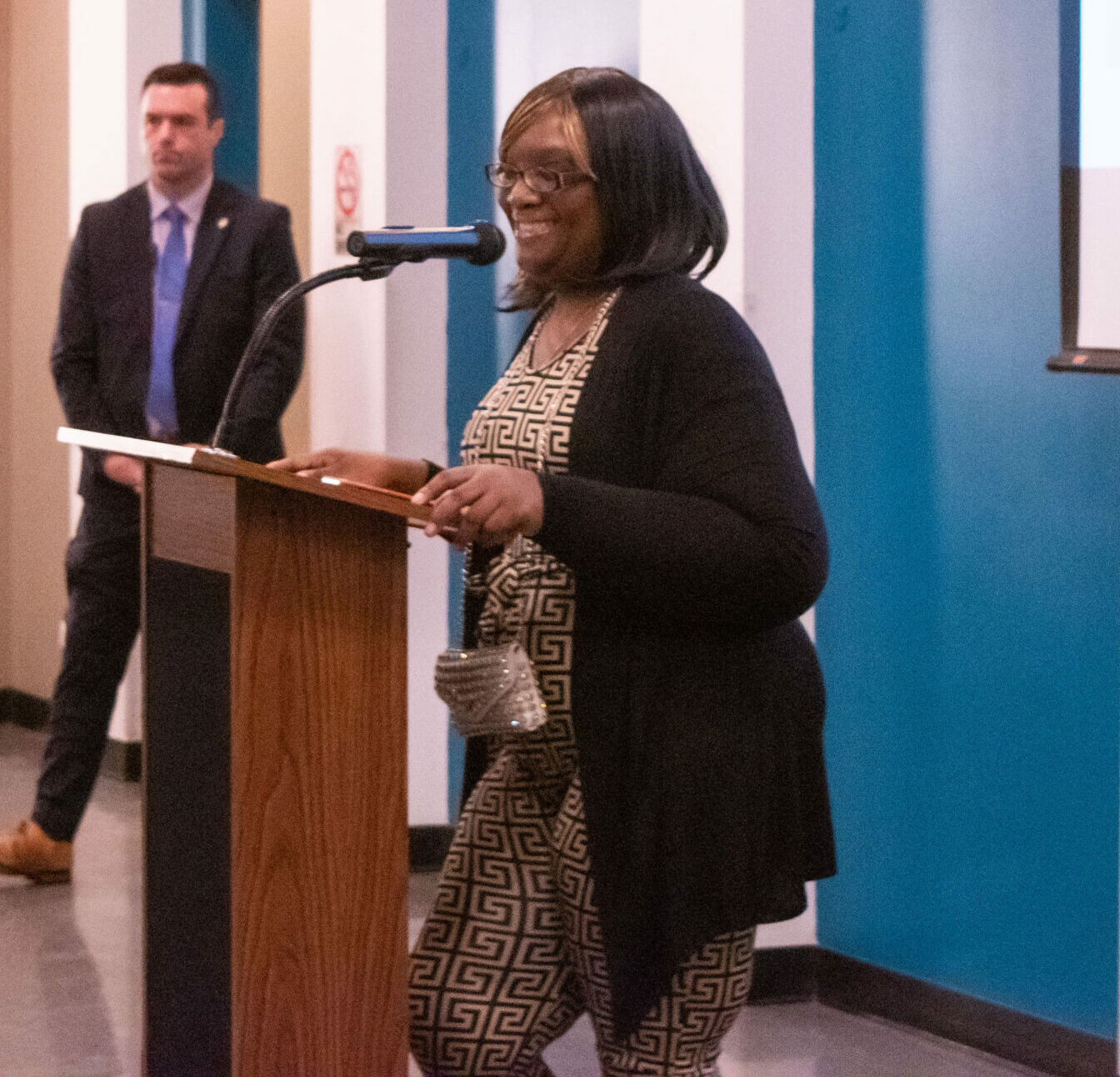The American Writers Museum hosted CCH’s annual Horizons creative writing showcase on Tuesday, June 25. The event brought together family, community members, and CCH staff to listen and experience art.
Each poet received art made in response to their poetry, created by students at Adler University. CCH’s Horizons program is offered twice a month at shelters and supporting living centers and headed by Claudia Cabrera, Special Projects Organizer at CCH. At the showcase, Myron Byrd, a member of CCH’s Speakers Bureau and a Grassroots Leader, introduced each speaker and their poems.
Varied poems presented by participants bring energy and community to the American Writers Museum
“This means so much to me because I have come from so many feats. So I thought about a newfound love. When this newfound love came into my life, it was called a home. A true home. I’m an advocate that believes in standing for something or falling for everything. And I love my people. So this is dedicated for that home.”
Marketta Sims
“Before I start my poem, I just wanna say, I want everybody to just consider yourself, consider who you are right now. As I’m looking into the crowd, I see a bouquet. Every single one of you guys is a rose that grew from a crack in the concrete… And I just wanna say that I’m proud of y’all for standing tall. Every single one of you guys is standing before me and I have no idea of the traumas, the situations, the big life events that you guys have gone through, but nevertheless, here you are.”
Brooklyn Silas
CCH’s creative writing program Horizons offers creative writing workshops to parents experiencing homelessness who live at family shelters, as well as residents of adult shelters located in Chicago. Horizons was launched in 2007 by Director of Organizing Wayne Richard, a staff member since 2000. Wayne first became involved with CCH as a grassroots leader, when he lived in a West Side shelter that hosted an earlier version of the writing program. CCH organizer Claudia Cabrera, manages the program and annual creative event.
The Horizons Creative Writing Program has significantly expanded over the years, fostering creativity and empowerment among parents experiencing homelessness. During the COVID-19 lockdowns, the Horizons Showcase was held on Zoom, ensuring the continuation of this vital platform for expression. Initially a small initiative, it now boasts 15 participants, including grassroots leaders and residents from various shelters in Chicago. With consistent support from key partners like the American Writers Museum, dedicated CCH staff volunteers, and the involvement of Dr. Jennifer LaCivita and her students from Adler University, who create art interpretations of participants’ poems, the program has become a cornerstone of community engagement. Additionally, we have included more youth participants, encouraging them to share their creative voices with the world, thereby broadening the program’s impact and visibility.

